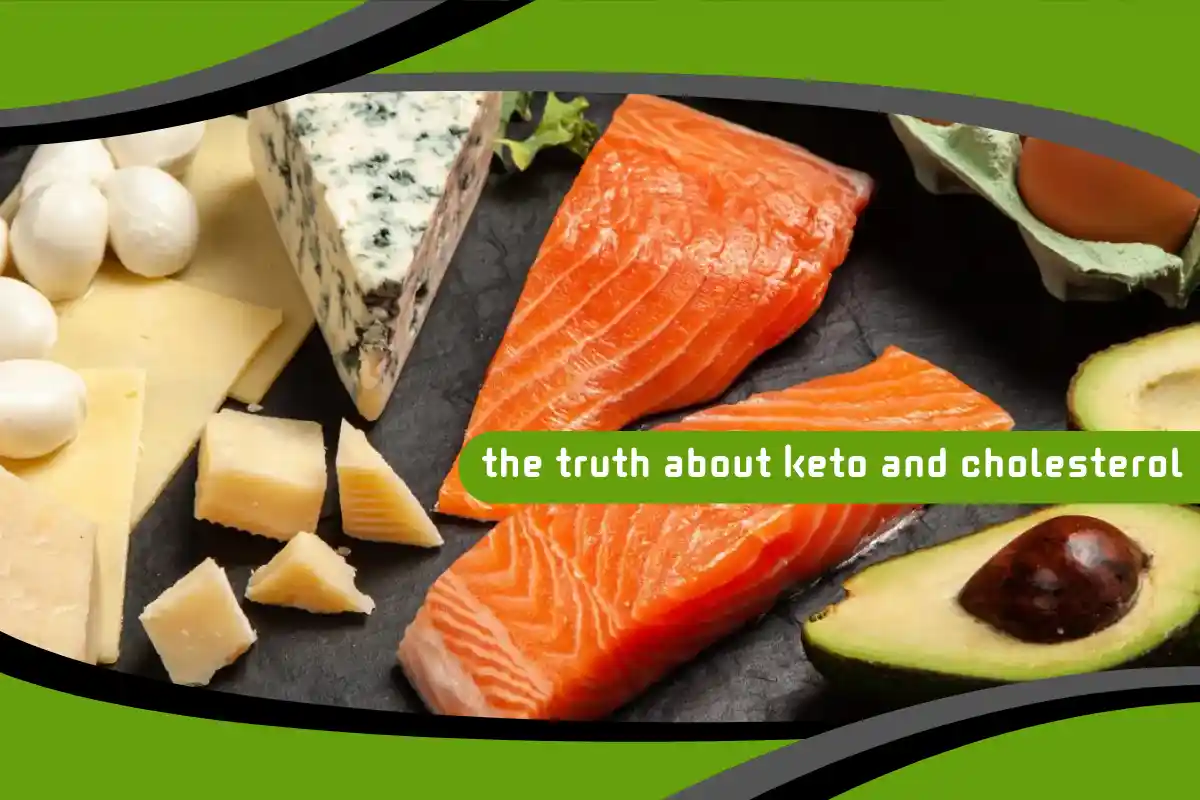The ketogenic diet, or “keto” for short, has gained immense popularity for its potential to support rapid weight loss and improve mental clarity. However, a major concern continues to shadow its rise—cholesterol. Since keto is high in dietary fats, many health professionals and individuals alike wonder whether this approach might raise the risk of heart disease due to elevated cholesterol levels. This article delves deeply into the science behind keto and cholesterol, separating myths from facts and offering insights that every health-conscious individual should understand.

Understanding the Basics of the Keto Diet
The ketogenic diet is a high-fat, moderate-protein, and very low-carbohydrate eating pattern designed to shift the body’s metabolism into a state of ketosis. In this state, the body uses fat—rather than carbohydrates—as its primary fuel source. This metabolic adaptation is known to produce ketones in the liver, which supply energy to the brain and muscles. With such a fat-centric approach, it’s easy to see why concerns about cholesterol naturally emerge. But dietary fat and blood cholesterol levels are not as straightforward as many think.
Types of Dietary Fats in the Keto Diet
On keto, individuals are encouraged to consume fats liberally, but not all fats are equal. There’s a vast difference between saturated fats from processed foods and healthy fats from sources like avocados, nuts, seeds, and olive oil. Unsaturated fats, especially monounsaturated and omega-3 fats, support heart health and can even improve cholesterol profiles. Meanwhile, trans fats—though not typically encouraged in keto—can negatively affect lipid levels and should be avoided. Understanding which fats to prioritize is essential when evaluating the cholesterol impact of a ketogenic lifestyle.
Watch also: How to Transition Off Keto Without Gaining Weight: A Complete Guide to Reintroducing Carbs Safely
What Is Cholesterol and Why Do We Need It?
Cholesterol is a waxy substance produced by the liver and found in every cell of the body. Contrary to its negative reputation, cholesterol is essential for hormone production, vitamin D synthesis, and cell membrane integrity. It also plays a role in digestion through the formation of bile acids. While some cholesterol comes from food, most of it is produced internally. Therefore, dietary intake doesn’t directly correlate with blood cholesterol levels in the way many assume.
The Role of LDL and HDL Cholesterol
Cholesterol travels through the bloodstream on two types of lipoproteins: LDL (low-density lipoprotein) and HDL (high-density lipoprotein). LDL is often labeled “bad” cholesterol because high levels are associated with plaque buildup in arteries. HDL is considered “good” because it helps remove LDL from the bloodstream. A healthy cholesterol profile involves not just reducing total cholesterol, but optimizing the ratio between LDL and HDL. This distinction becomes especially important in the context of keto, which can affect both types differently.
How Keto Affects Total Cholesterol Levels
Research shows that keto can lead to varying effects on total cholesterol. In some individuals, levels may increase slightly, while others may experience a decline. It’s important to remember that total cholesterol is a combination of HDL, LDL, and other lipid particles. A rise in total cholesterol driven by an increase in HDL is not necessarily a negative outcome. This reinforces the importance of looking at a full lipid panel—not just one number—when evaluating cardiovascular risk.
The Impact of Keto on LDL Particle Size
One of the lesser-known but critically important aspects of cholesterol health is the size of LDL particles. Small, dense LDL particles are more likely to penetrate arterial walls and contribute to plaque buildup. Larger, fluffy LDL particles are less atherogenic. Several studies have shown that keto may shift LDL particle size from small to large in some individuals, potentially reducing cardiovascular risk even if LDL levels increase. This nuance is often overlooked in cholesterol discussions.
Keto and Triglyceride Levels
Triglycerides are another key marker of heart health. High triglyceride levels are associated with increased risk of cardiovascular disease and metabolic syndrome. The ketogenic diet has consistently been shown to reduce triglyceride levels, particularly when carbohydrate intake is kept low and healthy fats are consumed. This reduction can play a significant role in lowering overall heart disease risk and improving metabolic outcomes, even in individuals with elevated LDL.
The Rise in HDL Cholesterol on Keto
One of the most consistent lipid changes observed on a keto diet is a significant increase in HDL cholesterol. This is a positive adaptation, as HDL helps transport cholesterol away from the arteries and back to the liver for recycling or excretion. High levels of HDL are protective against heart disease. Thus, an elevated HDL level in response to keto can help balance any potential rise in LDL and improve the overall cholesterol ratio.
The Role of Inflammation in Heart Disease
Cholesterol is not the sole culprit in heart disease—chronic inflammation plays a central role. The ketogenic diet, especially when rich in anti-inflammatory foods like leafy greens, nuts, and fatty fish, may reduce markers of systemic inflammation. C-reactive protein (CRP), an inflammation marker, has been shown to decline in many individuals on keto. Lowering inflammation could further mitigate any cholesterol-related risks and support long-term heart health.
Genetic Factors and Cholesterol Response
Genetics play a significant role in how individuals respond to dietary fat and cholesterol. Some people—known as hyper-responders—may see substantial increases in LDL on keto, while others experience little to no change. For this reason, a one-size-fits-all approach doesn’t work when it comes to cholesterol and the ketogenic diet. Personalized nutrition, guided by genetic testing or regular blood panels, is often the best path to safely navigate keto.
Watch also: Smart Carb Reintroduction After Keto: A Complete Guide to Transitioning Your Diet
The Difference Between “Clean” and “Dirty” Keto
Not all ketogenic diets are created equal. “Clean keto” emphasizes whole, nutrient-dense foods like vegetables, quality meats, healthy oils, and low-carb fruits. “Dirty keto,” in contrast, may include processed meats, artificial sweeteners, and low-quality fats. The latter is more likely to negatively affect cholesterol and overall health. Choosing nutrient-rich options not only supports better cholesterol outcomes but also improves energy levels, digestion, and immune function.
The Importance of Regular Blood Testing
Any dietary change, especially one as metabolically impactful as keto, warrants regular health monitoring. Blood tests can reveal how your cholesterol and other markers are evolving over time. Tests such as a complete lipid panel, ApoB, and LDL particle size can provide deeper insights than total cholesterol alone. By tracking these values, individuals can make informed adjustments to their diet, ensuring that they reap the benefits of keto without compromising cardiovascular health.
Keto’s Effect on Weight and Its Cholesterol Implications
Weight loss itself can dramatically influence cholesterol levels, often for the better. The ketogenic diet is highly effective at promoting fat loss, especially visceral fat, which is linked to insulin resistance and lipid abnormalities. As body fat decreases, many individuals see improvements in LDL, HDL, and triglycerides. This secondary effect of weight reduction may be just as important as the macronutrient composition of the diet itself.
The Misconception Around Saturated Fat
Saturated fat has long been vilified in mainstream dietary guidelines, yet recent research has called this position into question. While excessive intake of saturated fat from processed sources can be problematic, moderate amounts from whole foods like coconut oil, cheese, and grass-fed meats may not pose the same risks. In fact, in some studies, saturated fat has been shown to raise HDL and change LDL particle size favorably—especially in the context of a low-carb diet.
How Fiber-Rich Keto Foods Support Cholesterol Health
Fiber, particularly soluble fiber, can bind to cholesterol in the digestive tract and promote its excretion. Incorporating low-carb, fiber-rich foods like chia seeds, flaxseeds, and leafy greens into a keto diet may help mitigate cholesterol increases. Moreover, gut health plays a role in cholesterol regulation, and fiber feeds the beneficial bacteria that support this complex system. Thus, fiber is a critical component of a heart-healthy ketogenic approach.
The Interplay Between Keto and Insulin Sensitivity
Insulin resistance is a key driver of dyslipidemia—a pattern of abnormal cholesterol levels. The ketogenic diet has been shown to improve insulin sensitivity, which may positively affect lipid profiles over time. By reducing insulin levels, the body becomes more efficient at burning fat and regulating cholesterol. This is especially beneficial for individuals with type 2 diabetes or metabolic syndrome, who often see dramatic improvements on keto.
Special Considerations for Women on Keto
Women may experience different cholesterol responses to keto due to hormonal fluctuations, particularly during menopause. Estrogen plays a protective role in cholesterol metabolism, and its decline can influence lipid levels. Women should monitor their responses closely and work with a nutrition professional to ensure their version of keto supports hormonal balance as well as cardiovascular health. Including phytoestrogens and anti-inflammatory fats may offer additional support.
How to Adapt Keto for Better Heart Health
Individuals concerned about cholesterol can tweak their keto approach to minimize risks. Prioritizing unsaturated fats, incorporating more fiber, choosing grass-fed and wild-caught animal proteins, and avoiding processed foods are all smart strategies. Additionally, increasing physical activity, reducing stress, and getting adequate sleep all play roles in optimizing cholesterol levels. With these adjustments, keto can be both heart-friendly and effective.
Conclusion: A Personalized Approach Is Key
The relationship between keto and cholesterol is complex and deeply personal. While the ketogenic diet may improve some aspects of cardiovascular health, it may also raise certain lipid markers in susceptible individuals. Rather than generalizing, it’s essential to assess each case individually, track biomarkers regularly, and make dietary adjustments as needed. When done correctly, keto can be a powerful tool for improving health without jeopardizing the heart.
Watch also: Intermittent Fasting on a Keto Diet: Benefits, Risks, and How to Combine Them for Maximum Fat Loss



No comment